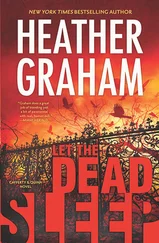Then he went back to his starting point and did it all again-but this time he did it as he imagined the Good Shepherd might have. First he found an unobtrusive spot to park by the side of the road not far from the connector to the state highway-a reasonable place for someone to lie in wait for a passing Mercedes, a popular vehicle among Barkham Dell’s weekenders.
Then he pulled out behind an imaginary black Mercedes, “followed” it to the beginning of the long curve, accelerated into the curve, swung out into the left lane, lowered his passenger window, and at the approximate point indicated in the accident reconstruction he raised his right arm and pointed it toward the imaginary driver.
“BAM!” shouted Gurney as loud as he could, knowing that no sound he could make could approach even 10 percent of the report of the.50-caliber monster used in the actual shooting. As he faked the shot, he jammed on his brakes, visualizing the victim’s car drifting from the arc of the curve, careening into the swamp, perhaps a hundred yards ahead of him. He pretended to lay the gun down on the seat, to take a tiny toy animal from his shirt pocket, and to toss it onto the shoulder of the road not far from the spot where he pictured the Mercedes embedded in the mud, surrounded by the remnants of the previous season’s brown marsh grass.
Having completed the fantasy attack, he drove on toward Barkham Dell. On the way he considered all the available options for disposing of a Desert Eagle pistol. Three cars passed him going in the opposite direction. One happened to be a black Mercedes-sending a chill up the back of his scalp.
At the traffic light in the village, he made a U-turn-in order to repeat the whole procedure. But just as he was approaching Dead Dog Lake, pondering its pluses and minuses as a pistol depository, his cell phone rang. The caller ID was his own home landline.
“Madeleine?”
“Where are you?”
“On a back road near Barkham Dell. Why?”
“Why?”
He hesitated. “Is there a problem?”
“What time is it?” she asked with disturbing calmness.
“What time? I don’t… Oh, Jesus… Yes, I see. I forgot.”
The clock on his dashboard read 3:15 P.M. He’d promised to be home by three. By three at the latest .
“You forgot?”
“I’m sorry.”
“That’s it? You forgot?” There was real anger in her controlled tone.
“I’m sorry. Forgetting is not something over which I have much control. I don’t purposely choose to forget things.”
“Yes you do.”
“How the hell could I? Forgetting is forgetting. It’s not an intentional thing.”
“You remember what you care about. You forget what you don’t care about.”
“That’s not-”
“Yes it is. You always blame it on your memory. It’s got nothing to do with your memory. You never forgot a court appearance, did you? You never forgot a meeting with the DA. You don’t have a memory problem, David, you have a caring problem.”
“Look, I’m sorry.”
“Right. So when will you be home?”
“I’m on my way. Thirty-five, forty minutes?”
“So you’re saying you’ll be here by four?”
“Definitely by four. Maybe sooner.”
“Fine. Four o’clock. Just an hour late. See you then.”
The connection was broken.
At 3:52 P.M. he reached the quiet lane that wound its way up, streamside, through a rising declivity in the hills, to their farmhouse. A mile up the lane, he pulled onto a grassy area in front of a rarely used weekender’s cabin.
He’d spent the first ten minutes of the trip from Barkham Dell wondering why Madeleine had sounded so irritated-more irritated than usual by his forgetfulness, his carelessness, his failure to write down things that might slip his mind. The rest of the trip he’d devoted to pondering the Good Shepherd murders.
He wondered if any progress had been made on the case, once it came under the control of the FBI field office in Albany, that hadn’t been noted in the NYSP files available to Hardwick. He also wondered if there was a way of answering that question without going through Agent Trout. He couldn’t think of any.
However… if Trout was indeed as rigid as everyone seemed to think, then he would also be brittle. Gurney had learned time and again that a man tends to marshal his strongest defenses at his weakest point.
Thus a mania for control often betrays a terror of chaos.
And that suggested a path into the fortress.
He took out his phone and tapped in Holdenfield’s number. The call went into her voice mail.
“Hi, Rebecca. Sorry to bother you again on such a busy day. But there are some things about the Good Shepherd case that don’t quite fit together. In fact, there may be a fatal flaw in the FBI construct. When you have a moment, give me a call.”
He slipped the phone back into his pocket and drove the rest of the way up the hill.
Surprise
As he passed between the pond and the barn, and the house came into view at the top end of the pasture, he saw, just visible above the bent and broken tops of the brown pasture grass, the handlebars and gas tank of a motorcycle next to Madeleine’s car.
He reacted to the sight with a mixture of interest and suspicion. When he pulled in next to it, his interest grew. The motorcycle, in pristine condition, was a BSA Cyclone, an increasingly rare machine that hadn’t been manufactured since the 1960s.
It was reminiscent of a bike he’d once owned himself. In 1979, when he was a freshman at Fordham, living in his parents’ Bronx apartment, he commuted to the campus on a twenty-year-old Triumph Bonneville. When it was stolen during the summer between his freshman and sophomore years, he’d already been through enough stinging rainstorms and near accidents on the Cross Bronx Expressway to make the boredom of the bus acceptable.
He went into the house through the side door, which led via a short hallway to the big kitchen. He expected to hear voices, perhaps the voice of the visiting biker, but all he heard was something sizzling on the stove. When he entered the room, it was full of the aroma of the onions Madeleine was sautéing in a wok. She didn’t look up.
“Whose motorcycle is that?” he asked.
“Was it in your way?”
“I didn’t say it was in my way.” He waited, staring at her back. “So?”
“So?”
“So whose is it?”
“I’m not supposed to say.”
“What?”
She sighed. “I’m not supposed to say.”
“Why the hell not?”
“Because… someone wants his visit to be a surprise.”
“Who? Where is he?”
“It’s a surprise.” She sounded unhappy with the position she’d been put in.
“Someone is here to see me?”
“Right.” She turned off the burner, picked up the wok, and scraped the onions out over a layer of rice in a baking dish next to the stove. “Where’s Kim?”
“She and your visitor went for a walk.” She went to the refrigerator, took out a bowl of raw peeled shrimp, a second bowl of chopped peppers and celery, and a jar of minced garlic.
“You know,” said Gurney, “I’m not very fond of surprises.”
“Neither am I.” She turned up the gas under the wok, dumped the vegetables into it, and began stirring vigorously with a spatula.
Neither one said anything for a long minute. Gurney found the silence uncomfortable. “I assume it’s someone I know?” He immediately regretted the inanity of the question.
Madeleine looked directly at him for the first time since he came in. “I hope so.”
He took a deep breath. “This is impossibly silly. Tell me who came on that motorcycle and why he’s here.”
Читать дальше












